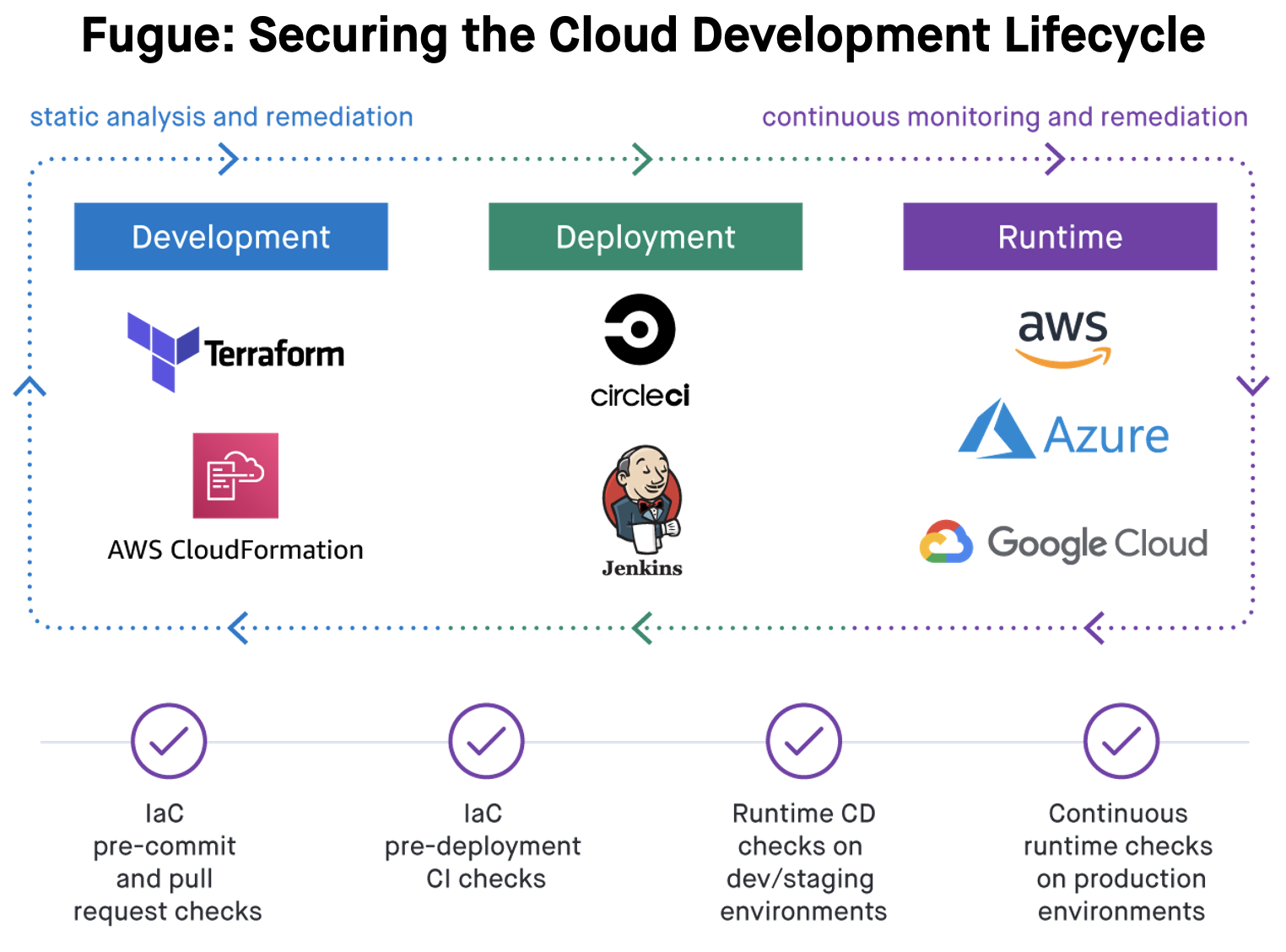
Today we announced that Fugue now supports Google Cloud, in addition to Amazon Web Services (AWS) and Microsoft Azure. Google Cloud support is key to providing our customers with a unified view of—and control over—the security posture of their cloud environment across cloud platforms. It was a top customer request, and considering the number of Google Cloud Projects we’ve seen onboarded to Fugue over the past few days, it’s clear that Google Cloud is experiencing significant growth.
“Fugue provides us with the ability to conduct comprehensive cloud security audits fast, and now with Google Cloud support, we can apply the same rules consistently across multiple cloud platforms. Keeping cloud infrastructure secure and measuring adherence to security standards used to be time-consuming and highly manual. Fugue has automated these processes to provide immediate and continuous visibility into highly dynamic cloud environments, helping ensure that we continue to innovate at a fast pace without compromising on security.”
— Alfonso Cabrera, Director of Platform Engineering at Red Ventures
In addition to the growth we see with Google Cloud adoption is the acceleration of multi-cloud usage. This is sometimes due to strategic concerns over vendor lock-in, but more often it’s because different clouds have different strengths, and cloud application and engineering teams often have a lot of autonomy in making technology decisions. They can do more and innovate faster when they’re not constrained to specific tools and platforms.
But for all its advantages, using multiple cloud platforms does bring new challenges, particularly when it comes to security and compliance. Different cloud engineering teams may be comfortable working with certain cloud platforms, but security teams are tasked with keeping environments spanning multiple cloud platforms secure.
An at-scale environment in a single cloud platform tends to be highly dynamic and increasingly complex, with tens of thousands of resources and millions of configurations spanning regions and accounts. A multi-cloud environment is an order of magnitude more challenging from a security perspective. And the risk due to security failure is huge, as cloud misconfiguration is the number one cause of cloud-based data breaches.
And that raises some critical questions every company must address:
- Do we have unified visibility into our security posture across cloud platforms?
- Can we apply compliance policies consistently across cloud platforms (and at every stage of the cloud development lifecycle)?
- Do we have the expertise on hand to keep our multi-cloud environment secure?
The effort to address these questions and keep cloud environments secure has created another problem: cloud security is the biggest roadblock standing in the way of teams that are otherwise capable of moving a lot faster. Businesses need to innovate fast to stay competitive, but security too often requires everyone to slow down. New era, same friction.
At Fugue, our mission is to help companies transform how they do security in a multi-cloud environment so teams can move faster at every stage of the cloud development lifecycle. The addition of Google Cloud support is an important part of this mission. The ability for cloud engineering and security teams to apply the same cloud security policies at each stage of the cloud development lifecycle, from infrastructure as code to the runtime, across cloud platforms, is key to moving fast and saving time and money.
Fugue support for Google Cloud initially includes 59 resource types and audit and reporting capabilities for the CIS Google Cloud Computing Platform Foundations Benchmark, CIS Controls, CSA CCM, GDPR, HIPAA, ISO 27001, NIST 800-53, PCI, SOC 2, and your custom enterprise policies. Fugue automates immediate and continuous security visibility and compliance reporting for cloud development and operations to prevent misconfiguration vulnerabilities and streamline previously time-consuming and resource-intensive tasks.



